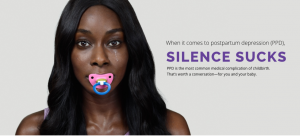
Depression is a difficult problem for drug developers. Current marketed antidepressants are effective for a relatively small percentage of patients (about 20 in 100) and most require weeks of treatment to show an effect. Patients often need to try several drugs to find one that works for them, and some patients do not respond to any of the available therapeutics.
Drug development in depression is further complicated by a high placebo rate, especially in those with moderate depression. This has led to the failure of many trials in Phase 3 despite encouraging Phase 2 results.
In November, Neuralstem presented updated data from its Phase 2 study of NSI-189 that illustrates the difficulty in showing clear benefit in depression trials. The trial is centered around major depressive disorder (MDD), also known as clinical depression, a common but serious mood disorder with often severe symptoms that significantly interfere with people’s lives. The company had announced earlier in the year that NSI-189 had failed its primary endpoint in the complex 200 patient trial, showing no statistically significant benefit as measured by the Montgomery Ashberg Depression Rating Scale (MADRS). In the updated data, however, the researchers found that NSI-189 had shown both significant anti-depressive effects and cognitive benefit by two of the several measures employed as secondary endpoints. It remains for larger Phase 3 studies to show whether NSI-189 has achieved clinical trial success and can advance towards commercialization.
More recently, however, results of clinical studies for two different drug candidates from Sage Therapeutics have shown more promise, offering not only statistically significant clinical benefit versus placebo, but relatively rapid onset of effects in both MDD and postpartum depression (PPD).
In early November, Sage announced positive results from two Phase 3 trials of brexanolone in women suffering from PPD. PPD affects an estimated 10-20% of women giving birth in the United States, and there are no currently effective treatments. Brexanolone is a proprietary formulation of allopregnanolone, a naturally occurring hormone known to modulate the GABAA receptor, and research suggests that PPD may be triggered by hormonal imbalances that brexanolone corrects. Results of both studies showed that a 60-hour infusion of the drug significantly reduced depressive symptoms compared to placebo in women with severe or moderate PPD symptoms, as determined by a drop in the Hamilton Depression Rating Scale (HAM-D) score, a standard measurement of depressive symptoms. Benefit was first observed 48 hours after therapy, and in the high dose trial in severe PPD, the benefit was maintained through the 30 days of observation. While a statistically significant benefit was also achieved in the moderate PPD patients treated with a lower dose of brexanolone, it was only maintained for seven days.
Then in December, Sage announced positive data from an 89 patient, placebo-controlled Phase 2 trial of a second compound, the company’s once-daily oral drug SAGE-217, in MDD. In this study, SAGE-217 met its primary endpoint by showing a statistically significant reduction in HAM-D scale scores (which fell an average 17.6 points in patients receiving SAGE-217 versus 10.7 for placebo) 15 days after starting treatment — much faster than what is achieved with current depression medications. The statistically significant difference persisted for four weeks before fading, with the most common side effects being headache, dizziness, nausea and drowsiness. While Sage needs to replicate these positive results in further studies, the announcement excited both the medical and investor communities.
Sage is now planning for an NDA filing for brexanolone in postpartum depression in 2018. Somewhat unusually, the company began a global awareness campaign for the disorder — “Silence Sucks” — even before the Phase 3 data became available. However, questions remain around the real commercial potential for this drug. None of the currently marketed therapeutics for depression are effective in the indication, which appears to be triggered by a different mechanism from other depressive disorders. Furthermore, the ability to recognize and seek care for PPD is complicated by the stigma associated with the condition. It also remains to be seen how many women will be willing to undergo a 60-hour infusion, especially for moderate level cases where the improvement achieved by treatment was small.
Will Sage’s noteworthy Phase 2 achievement in MDD with SAGE-217 carry through to a similar success in Phase 3? And what about Neuralstem and NSI-189, where the Phase 2 benefit was somewhat less clear than that of SAGE-217? Stay tuned….